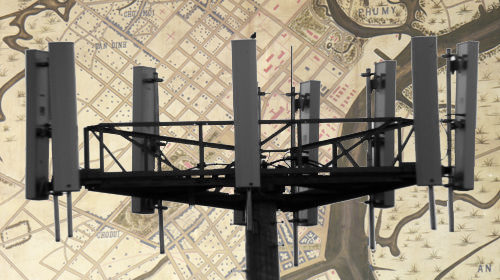Cell Tower Dumps: Another Surveillance Technique, Another Set of Unanswered Questions


Today, the ACLU filed a Freedom of Information Act request with the FBI, the DEA, the Secret Service, and several other agencies asking for information about a surveillance technique known as a “.” If you’re wondering what that is or why we’re worried about it, a story from a few years back might help to illustrate.
In 2010, the FBI was looking for a pair of bank robbers known as the “.” Security footage from the banks wasn’t very revealing, so the Bureau turned to cell phone companies for help. To find out who was consistently near the banks when these robberies took place, they asked for the number of every single phone that was connected to cell towers near the robbed banks around the time the crimes occurred. In response, they got back over 150,000 numbers. This is a cell tower dump: the practice of demanding an enormous amount of cell phone location information—anywhere from hundreds to hundreds of thousands of data points—in an effort to identify just a few suspects.
The plan worked, and the FBI was able to identify the two numbers belonging to the robbers. But they still had around 150,000 numbers left over—meaning the FBI was in possession of location information about many thousands of people who were not suspected of any wrongdoing. You might be wondering, as we did, what happened to all of that sensitive data in the federal government’s hands?
Unfortunately you’ll have to keep wondering, at least until the government responds to our request. The legal standards surrounding tower dumps are extremely murky:
- We don’t know what law enforcement agencies do with the data about innocent people that makes up most of what is caught in a tower dump net.
- We don’t know what minimization measures they have in place to ensure they collect as little data about innocent people as possible.
- We don’t know if or when they notify individuals that their information was collected.
- We don’t even know what evidence they believe they need to show a judge before proceeding with a cell tower dump in the first place.
Cell tower dumps aren’t rare. A congressional inquiry found that companies received at least tower dump requests in 2012, and in 2013 Verizon alone reported receiving such requests. Even when they were successful in helping to solve a crime, virtually all of those dumps also resulted in the government obtaining location information about hundreds, thousands, or even hundreds of thousands of innocent people. When the government has information like that on such a large scale, it can change the way people behave—causing them not to associate with certain groups or participate in certain activities the government may stigmatize, even when doing so is perfectly legal in a free society. Some local law enforcement agencies have already to monitor people at events like protests outside a world trade conference using their cell phones.
If we’re going to protect the privacy of our location information, and the right of free association that such privacy enables, it is important that we know under what standards the government is obtaining tower dump data, and what they do with it afterwards. We hope that the Freedom of Information Act request we filed today will help us find out.

